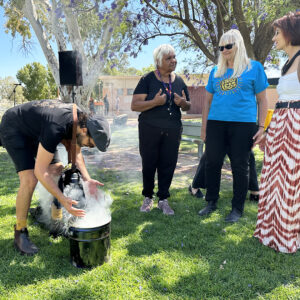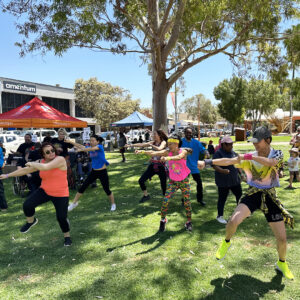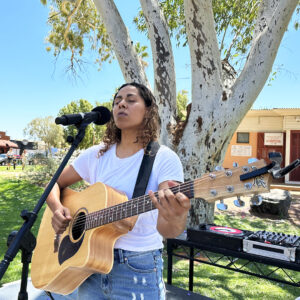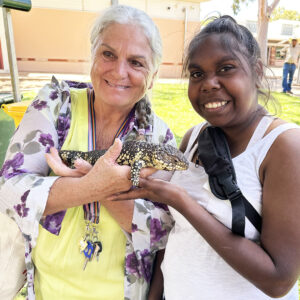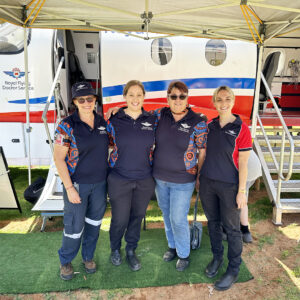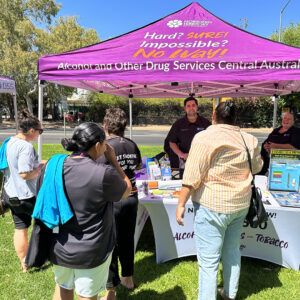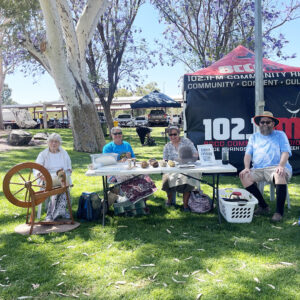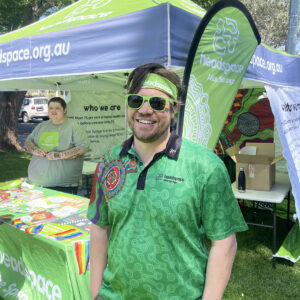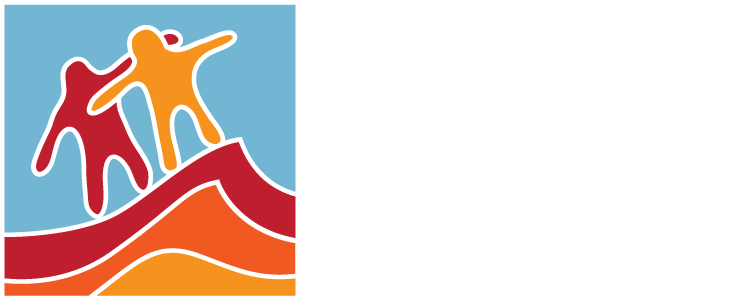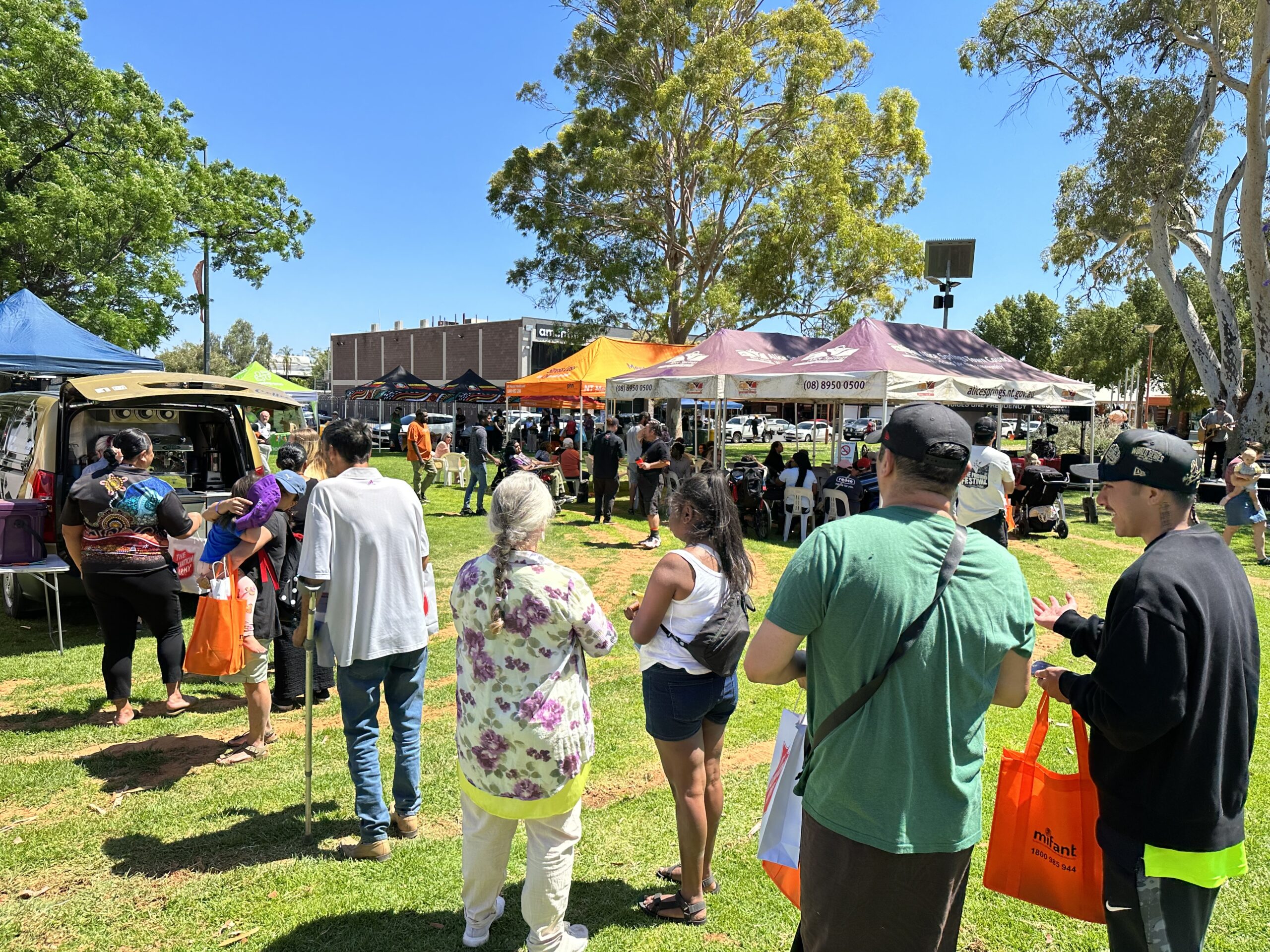The Northern Territory Mental Health Week was held between 7-15 October 2023. This year’s theme was Celebrating Our Strengths.
MHACA’s 30th Birthday
Happy birthday MHACA! We hosted our 30th birthday celebration at MHACA’s Drop-in Centre as part of Mental Health Week.
Maya and Olga, who supported the early development of the organisation, joined us and shared some stories. They highlighted the reputation of the work we do, and how fantastic it is that MHACA is still going strong, 30 years on.
Pip and Mandy shared their experiences as MHACA participants, and our CEO Dira and Pip, launched the Lived Experience Workforce Development Framework MHACA has developed with the support of Charles Darwin University and the Northern Territory PHN.
Thank you to Aunty Sabella Kngwarraye for the Welcome to Country and traditional healing ceremony, and to the more than 80 people, stakeholders and community members who came and celebrated with us.
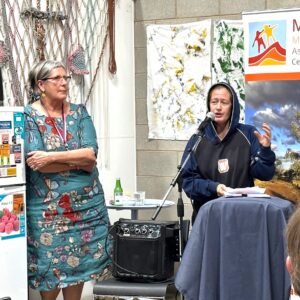
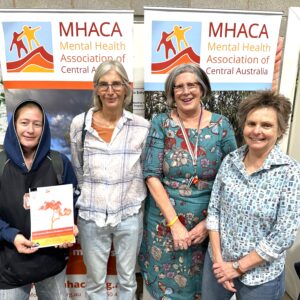
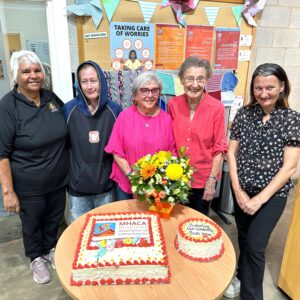
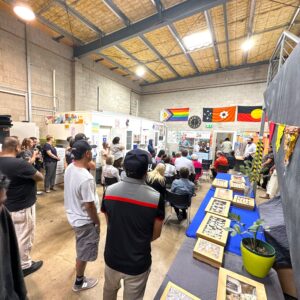
Tjanpi Weaving Workshop
Tjanpi Desert Weavers came to MHACA and hosted two weaving workshops as part of Mental Health Week. Community members and MHACA participants had the opportunity to learn how to make a basket out of natural fibers, and took a moment to relax and enjoy each others company.
A big thank you to Trudy, Julie, and Ruby – we had a lovely morning!
Tjanpi Desert Weavers is a social enterprise of the Ngaanyatjarra Pitjantjatjara Yankunytjatjara (NPY) Women’s Council, working with women in the remote Central and Western desert regions who earn an income from contemporary fiber art. Beyond providing the women with an income, weaving is a meditative practice that supports wellbeing by calming the mind and allowing stress to melt away.
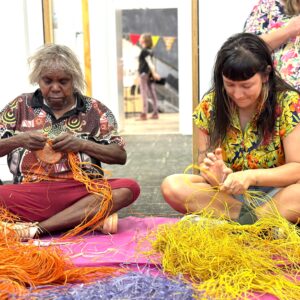
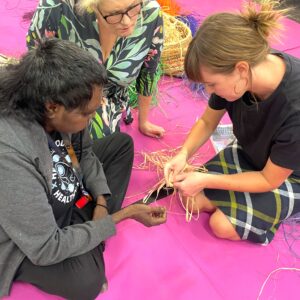
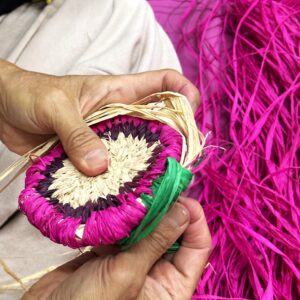
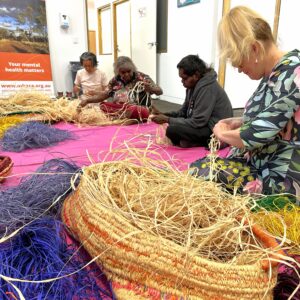
Stress Less in the Park
More than 450 people enjoyed the beautiful weather at Stress Less in the Park and learnt more about how to support mental health and wellbeing. 27 local organisations hosted stalls and shared information about the support people in Mpartnwe/Alice Springs can access.
A special thank you to Aunty Sabella Kngwarraye for the Welcome to Country and traditional healing ceremony, Deputy Mayor Alison Bitar, Millee Sotheren from Northern Territory PHN, Plaza Wellbeing Centre, FoodBank, and to the stakeholders and community members who came and stressed less with us.
Stress Less in the Park is the feature event of Mental Health Week and is organised by MHACA, with the support of partner organisations, the Northern Territory PHN and Alice Springs Town Council.
